Most Secret War (Penguin World War II Collection)
£11.40£14.20 (-20%)
Reginald Jones was nothing less than a genius. And his appointment to the Intelligence Section of Britain’s Air Ministry in 1939 led to some of the most astonishing scientific and technological breakthroughs of the Second World War.
In Most Secret War he details how Britain stealthily stole the war from under the Germans’ noses by outsmarting their intelligence at every turn. He tells of the ‘battle of the beams’; detecting and defeating flying bombs; using chaff to confuse radar; and many other ingenious ideas and devices.
Jones was the man with the plan to save Britain and his story makes for riveting reading.
Read more
Additional information
| Publisher | Penguin (6 Aug. 2009) |
|---|---|
| Language | English |
| Paperback | 608 pages |
| ISBN-10 | 0141042826 |
| ISBN-13 | 978-0141042824 |
| Dimensions | 12.7 x 2.67 x 19.69 cm |

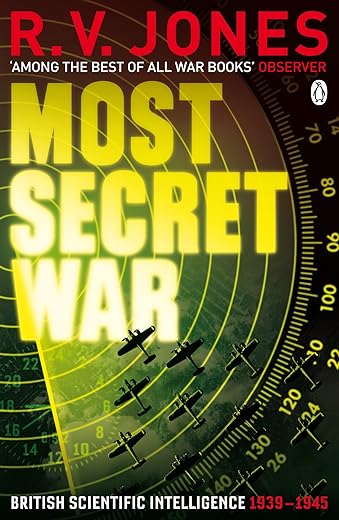
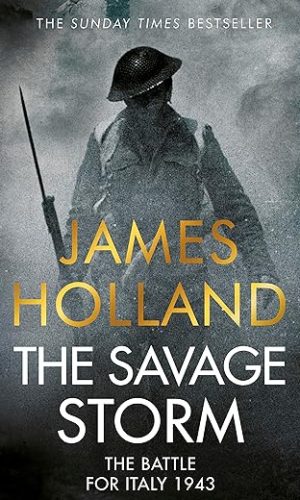

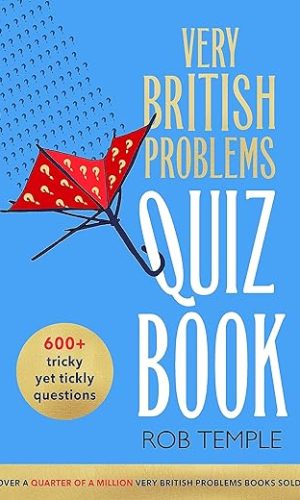
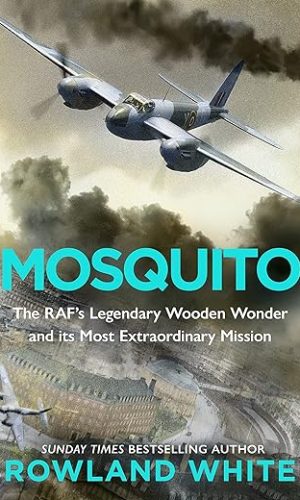
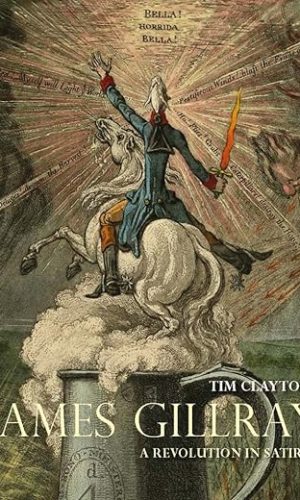


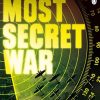
by Mr. S. Stewart
This is a wonderful account of Professor Jones’ magnificent work during the war. The machinations involved, and the courage skill and determination of those involved, as well as the mistakes, is all very revealing.
by david misell
research
by Peter B
I have read a lot of books on the “Intelligence War” and this is one of the best, being full of information but unlike some also very readable. To someone who has not read other books on the subject they might think that the author is overclaiming the importance of his contribution to the Second World War, and no doubt he is to some extent, but there are plenty of other sources which confirm that he and his department were serious players, though perhaps he downplays others contributions a little at times.
To somebody not of this country it might seem stereotypically “English” when he meets his contacts from other organisations in their London Clubs, and when he quotes Greek philosopy in his reports but I suppose that is a measure of the people he worked with, in the same way that the staff at Bletchley Park were in many cases academics and often rather an eccentric lot. The one thing that struck me as incongruous was when he and his new wife took a holiday in August 1940 right at the height of the Battle of Britain – I doubt that would happen now in the middle of a war!
The book ranges from the early 30’s to the second period with Churchill as PM in the early1950’s and is a very good guide to “Air Intelligence” which was the author’s field. If you want to know about Naval Intelligence I can also recommend Patrick Beesly’s “Very Special Intelligence”. That just leave Army Intelligence and I am still trying to find a good book on that.
All in all I am glad I bought this book and I can recommend it to anybody who wants a highly readable account with plenty of detail.
by lesley booth
Good read
by Richard L
This book was purchased to replace a previous copy, which has unfortunately gone missing at home. It is one of, if not the best book written about the contributions to the Allied war effort by scientists, armed forces personnel and patriots in many countries who on a daily basis, risked the lives and liberty for Great Britain and her allies during World War II.
This particular edition, unfortunately suffers from a cheapening of the materials from which it is made. The paper is of inferior quality and because of this some of the maps and illustrations are very difficult to interpret. The original edition had the photographs printed on high quality photo paper, which is not the case in the current book. It is now extremely difficult to see just what the RAF photographic staff really saw on the originals.
Having said that, it was worth the purchase, but I hope I can find my original copy somewhere soon.
by Gasman
The style is somewhat archaic, as you might expect from a book written 50 years ago, but the first chapter’s observations on the challenges facing Western democracy from Fascist and Communist dictators travel right through the ages and are very pertinent today. The well meaning naivety of many in the ’30s is echoed right now. It was seriously proposed that the people of the “buffer” states – Poland etc. – could stop an invasion by massing on the border unarmed, and the crews of the dictators tanks would refuse to proceed and crush the civilians. The events of ’39 – ’44 show that to be whimsical nonsense.
by Heathbridge
This is without question the most fascinating book about WW2 that I have ever read. Jones was a scientist who, throughout the war, was at the very centre of the UK intelligence services. He played a cat-and-mouse game with his German counterparts, attempting to outwit their technical developments with counter measures that, at times, verged on the hilarious.
His role brought him into contact with Churchill, top civil servants, senior armed forces leaders and other scientists. He was, therefore, in a privileged position to observe and comment on their strengths, weaknesses and rivalries, which he does with admirable objectivity. He was also in close contact with Bletchley Park and shows that their everyday code-breaking successes went far beyond the cracking of Enigma that makes the headlines.
It is a lengthy tome but iis superbly written with honesty and humour, making it a real ‘page-turner. If you read only one historical account of WW2, make it this one. It is worth all of the others put together – and he was there!
by P. G. Croft
There will never be another, who could speak with such authority and clarity, about the scientific battle that raged during WW2–against the Nazis, as described here so coherently, by the great R. V. Jones ( Prof). I won’t attempt to go into details, that would merely be duplicating the marvelous accounts presented in the earlier Reviews and Comments here. I would just point out, that my introduction to this great and secret battle–was the equally wonderful account, that was transferred from this book, into the BBC’s 1977 6 part series, for television. ” The Secret war”. I saw this highly praised series first ( back in the day) and have only recently read the book–so, having done things in reverse. The DVD is still available, not easy to find, and not exactly cheap. So, if interested in seeing the great man on film, describing in detail , all the great episodes and clashes between scientific brains–AND narration by the great William Woollard—-I recommend both Book and DVD. P G Croft UK.